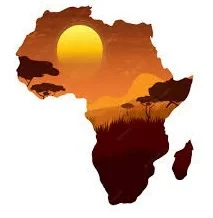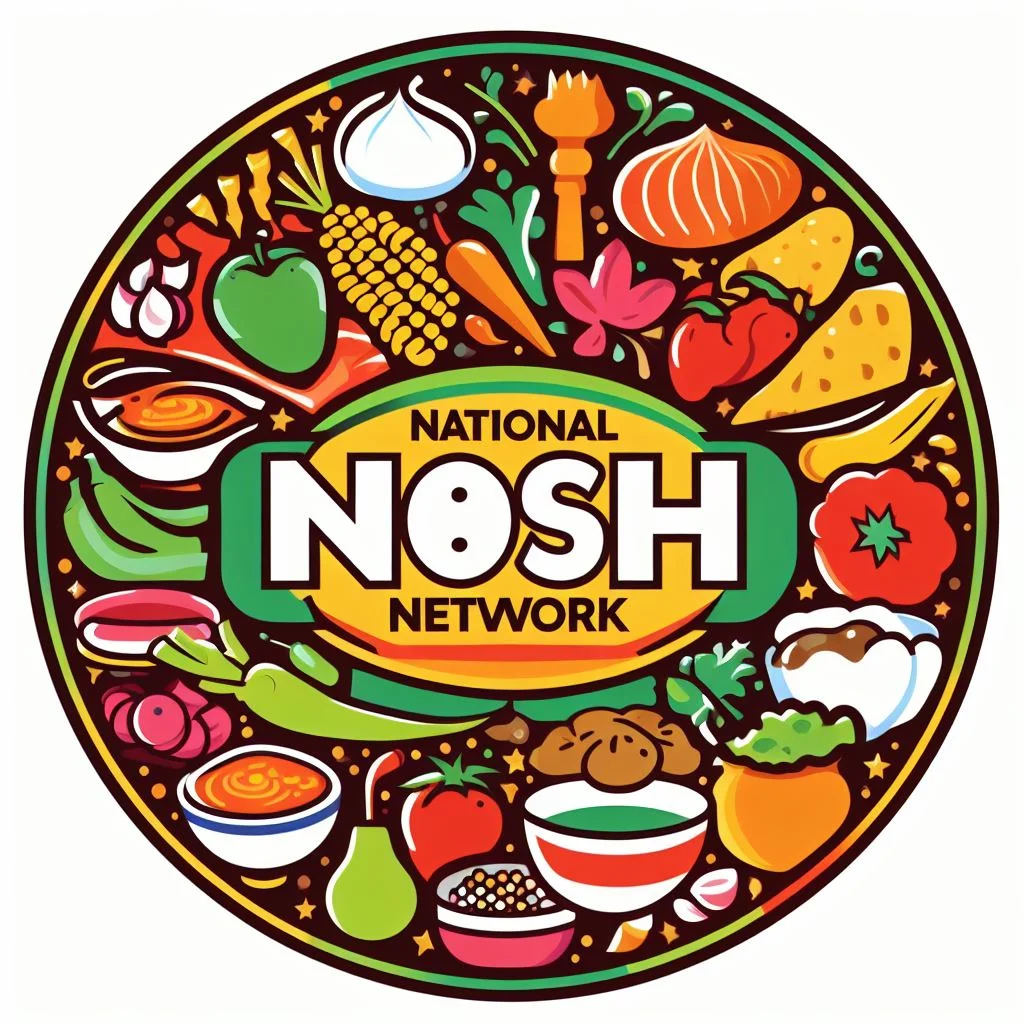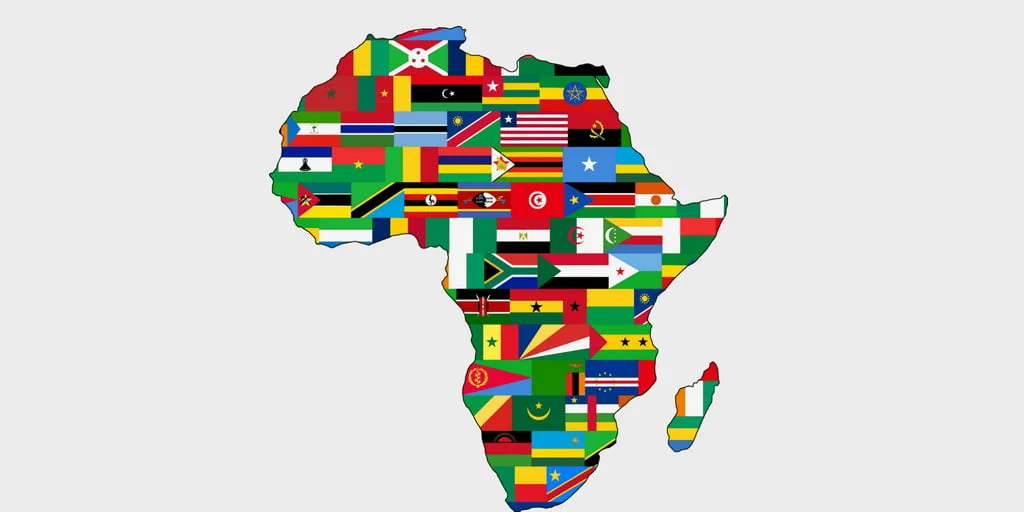African cuisine, a vibrant and diverse culinary art form, is as varied and colorful as the continent itself. Africa, the world’s second-largest continent, is home to a rich tapestry of cultures, each with its own unique set of flavors and traditions.
This article explores the countries that make up Africa, the main characteristics of African cooking and the geographic and climate features that have influenced it.
We also look at the main ingredients used in African recipes, the health aspects of African cooking, and how African recipes have spread throughout the rest of the world.
The Countries that Make Up Africa
Africa comprises 54 recognized countries, each boasting its own distinct culinary identity.
From the tagines of Morocco in the north to the seafood of Mozambique in the southeast, from the jollof rice of West Africa to the injera of Ethiopia in the east, the continent’s cuisine is as diverse as its geography.
Five regions make up the continent: North Africa, West Africa, Central Africa, East Africa, and Southern Africa. Each region offers a unique palate of flavors and dishes.
The Main Characteristics of African Cuisine

African cooking produces hearty, robust flavors. These often have a base of grains and legumes, complemented by a variety of spices and.
In many regions, a focus is on communal eating.
Starches like fufu, injera, and ugali are staples, serving as the perfect vehicles for rich, flavorful sauces and stews.
Cooking methods vary widely. Often these involve slow-cooking processes to tenderize meats and meld flavors. Grilling is a technique widely used across the continent.
The Geographic and Climate Features that Have Influenced African Cuisine

Africa’s geography and climate have had a profound impact on its traditional cooking methods and ingredients.
The vast Sahara Desert influences the North African diet to include more grains and preserved foods. These can withstand arid conditions.
The tropical climates of Central and West Africa yield an abundance of fruits, tubers, and grains. These form the basis of many dishes.
The East African coast, with its long history of trade, has a cuisine rich in spices like cloves and cinnamon.
Southern Africa’s temperate climate allows for a diverse range of farming, influencing its varied diet.
The Main Ingredients of African Cuisine
African recipes build around a variety of staple ingredients. Grains such as millet, sorghum, and maize are common, as are tubers like yams and cassava.
Beans, lentils, and other legumes provide protein for large parts of the population. Spices and herbs add complexity to dishes, with each region having its own signature blends.
Meats, including beef, goat, and chicken, commonly feature, while in coastal regions, fish and seafood are prevalent. Fruits such as bananas, mangoes, and papayas are also integral to many African cuisines.
How Healthy is African Cuisine

African cooking can be incredibly healthy, as it often emphasizes whole foods, vegetables, and lean proteins. Traditional diets are rich in fiber and complex carbohydrates, with a moderate use of meats.
Many dishes are cooked using methods like stewing and grilling, which can be lower in fat. However, with the modernization of diets and the introduction of processed foods, there are growing concerns about the move away from traditional, healthier eating patterns.
How African Recipes Have Spread Through the Rest of the World
African recipes have spread across the globe through the diaspora as people from Africa have migrated and shared their culinary heritage. Dishes like Moroccan couscous, South African bobotie, and West African peanut stew have gained international fame.
The global interest in diverse and authentic culinary experiences has led to an increased appreciation for African cuisine, with restaurants and food markets around the world now showcasing dishes from across the continent.
Conclusion
African cooking is a testament to the continent’s rich cultural diversity and history. Its emphasis on communal dining, rich flavors, and fresh ingredients not only makes it a cornerstone of many African cultures but also a growing part of the global culinary scene.
As the world becomes more interconnected, the influence of African cuisine is set to expand, bringing its unique flavors and cooking traditions to an even wider audience.
Links to Every African Country
The following are links to every African country and their cuisine. Recipes of each country are in every article.
- Angolan Cuisine and Recipes: A Taste of Africa
- Algerian Food: A Culinary Odyssey through North Africa
- Beninese Food Wonders: A Journey with 19 tasty recipes Awaits
- Botswana Cuisine Discover the Allure of and Recipes with Me
- Burkina Faso Feasts: 21 Recipes for Bold Flavors
- Burundian Cuisine – Delight in Traditional Flavors!
- Cameroon Food – A Spicy Adventure for Your Taste Buds
- Central African Republic Food: A Journey Through Flavor
- Chad Food – Desert Delights: The Unexpected Tastes
- Comoros Food: 21 Island Dishes & A Culinary Adventure
- Congo Cuisine Discover it’s Recipes: An Epicurean Adventure
- Djibouti Food: Horn of Africa’s Spicy & Seafood Surprise!
- Egyptian Cuisine: Savor the Unique Tastes of 22 Egyptian Recipes
- Eswatini (Swazi) Cuisine Explore the Authentic Recipes – A Culinary Journey
- Ethiopian Cuisine and Recipes – Discover the Delights offering
- Equatorial Guinea’s Culinary Delights
- Gambian Cuisine and Recipes: Discovering Africa’s Culinary Gem
- Ghanian Cuisine Explore Authentic Recipes with Me
- Ivorian Cuisine – Savor A Feast of the Traditional Flavors
- Lesotho Cuisine and Recipes: Explore A Taste of Africa
- Libyan Cuisine – The Rich Tapestry of Flavor
- Madagascan Cuisine – Explore Authentic Recipes with Me
- Rwandan Cuisine: A Culinary Journey Through the Heart of Africa
- Tanzanian Cuisine: A Deep Dive into East African Delicacies
- Zimbabwean Cuisine: A Fascinating Adventure of Taste and Tradition

